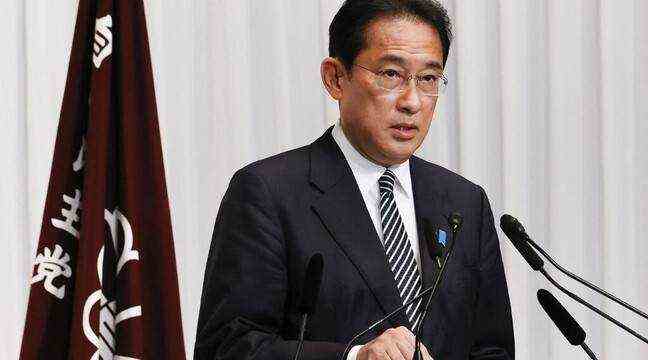The Liberal Democratic Party (PLD, conservative right) won the legislative elections in Japan on Sunday, consolidating its leader
Fumio Kishida to his post as Prime Minister to which he was appointed by Parliament on October 4. But the projects that await him are numerous.
Revive the economy
The first will be to revive the economy. Fumio Kishida has promised a new “large-scale” fiscal stimulus plan to revitalize the Japanese economy, whose recovery remains difficult. Restrictions on Covid-19, most of which were only lifted very recently, have plagued many sectors such as tourism, restaurants and retail.
Many precarious employees, who represent around 40% of the country’s working population, have been further weakened by this crisis. Fumio Kishida wants to adjust the stimulus policy that has characterized Japan since 2013 (the “Abenomics”) by ensuring that government aid and growth not only benefit large groups and financial markets, but also small and medium businesses and low-income households. However, he has yet to clarify how he intends to go about creating what he called a “new capitalism”.
Managing the Covid-19
This is the second big challenge that awaits Fumio Kishida. The health situation has improved considerably in Japan in recent months, after record infections recorded in the summer. Vaccination, which had been slow to start in the archipelago, is now high there: more than 70% of the national population has now received two doses. But finding a balance between boosting the economy and preventing the virus is a tricky exercise. Fumio Kishida said the fight against Covid-19 would be his “number one priority”.
Dealing with geopolitical threats
The Japanese Prime Minister will have to deal with the particularly tense regional geopolitical context at the present time, between repeated missile tests by North Korea and the growing ambitions of China, especially in the Pacific. Like the United States, of which it is a staunch ally, Japan now openly evokes its concerns about Taiwan, a territory on which pressure from Beijing is increasing.
The PLD wants to strengthen the defense budget, but the subject is sensitive because of the pacifist Constitution of Japan since the post-war period, which forbids it to acquire offensive weapons. The country remains ultra-dependent on the military power of Washington. Tokyo’s relations with Moscow and Seoul are also fresh, in particular due to territorial or historical disputes dating back to the first half of the 20th century and still unresolved.
Leading the energy transition
Fumio Kishida will also have to accelerate his country’s energy transition. Regularly criticized for its great dependence on fossil fuels, Japan has recently tried to be more committed to the fight against global warming. The Prime Minister, who wants to give Japan “a leading role in the efforts to achieve zero emissions [de CO2] in Asia ”, is due to leave for COP26 in Glasgow (Scotland) on Tuesday, his first trip abroad as Prime Minister.
In 2020, his predecessor Yoshihide Suga set a goal of carbon neutrality by 2050 for Japan. New government targets for the energy mix by 2030, which should boost the share of renewable energies, are expected soon. Fumio Kishida is in favor of relaunching nuclear power to achieve Japan’s climate objectives while reducing its energy dependence. But the subject is very sensitive in this country traumatized by the Fukushima disaster in 2011.
Respond to social questions
This is the last of the five big challenges that awaits the new Japanese Prime Minister. The archipelago is the only G7 country not to recognize same-sex unions, and Fumio Kishida said he “has not reached the point of accepting” a change in the law on this point. However, Japanese public opinion is now largely in favor of gay marriage, according to several polls. In March this year, a Japanese court also ruled that the non-recognition of marriage for all was unconstitutional, a first in the country.
On another social issue debated in Japan – granting the right to spouses not to take the same last name each -, Fumio Kishida considered that it was “important to move the discussions forward”.

